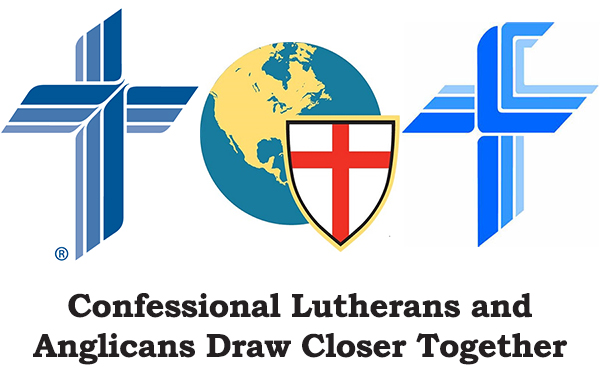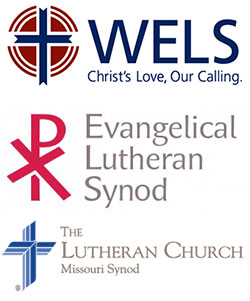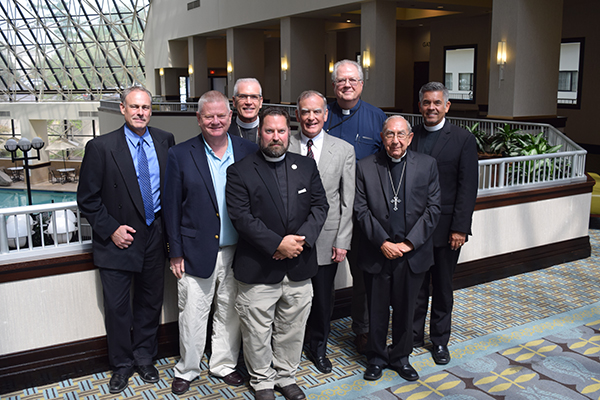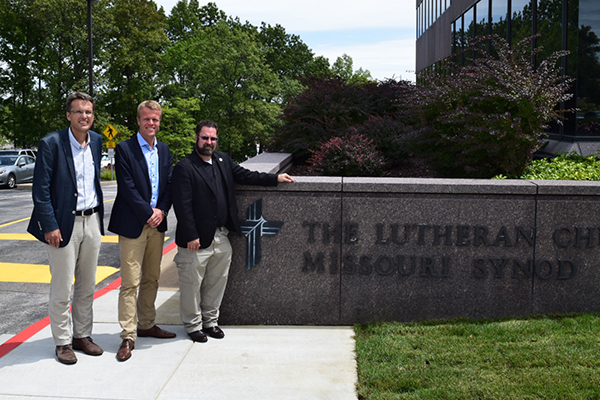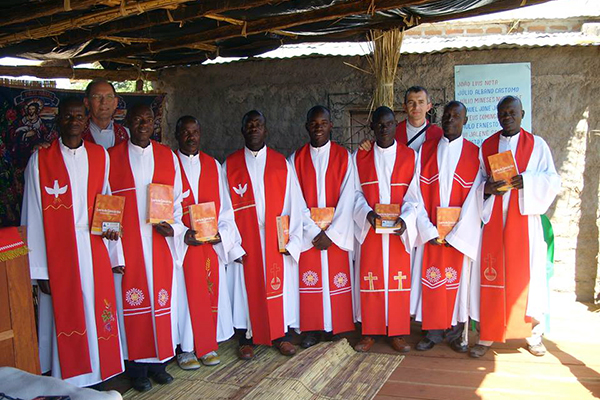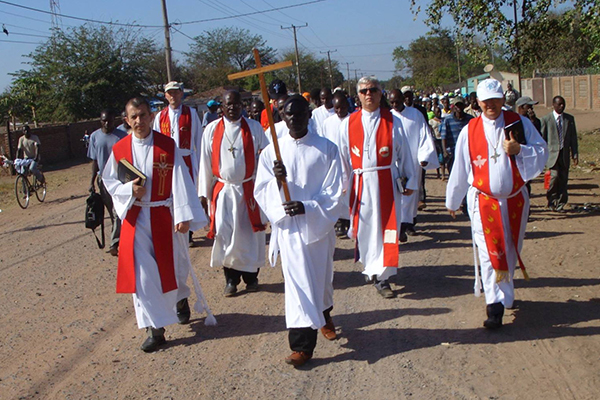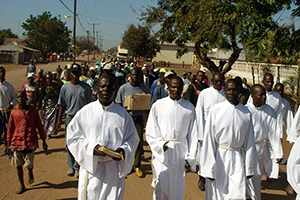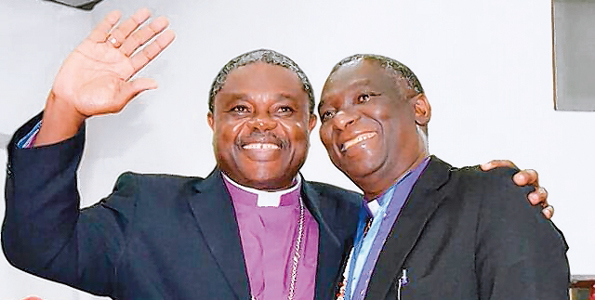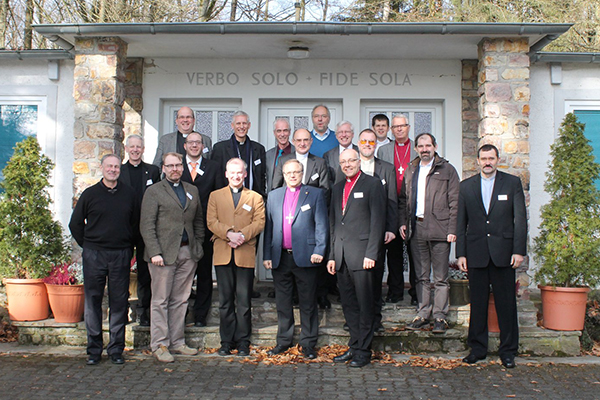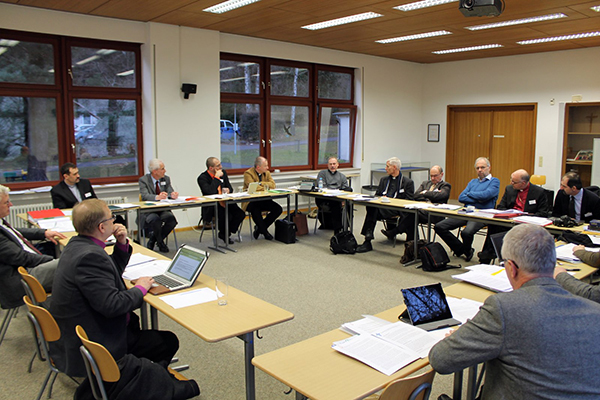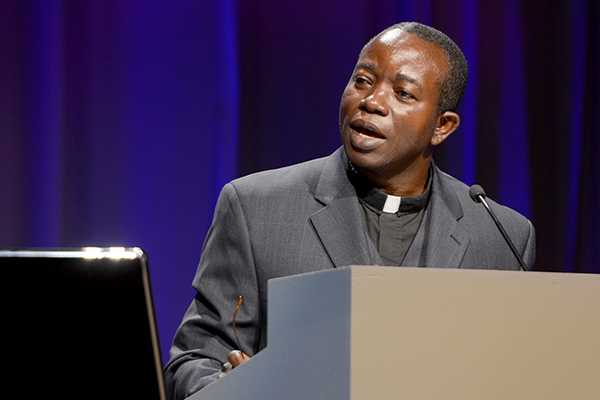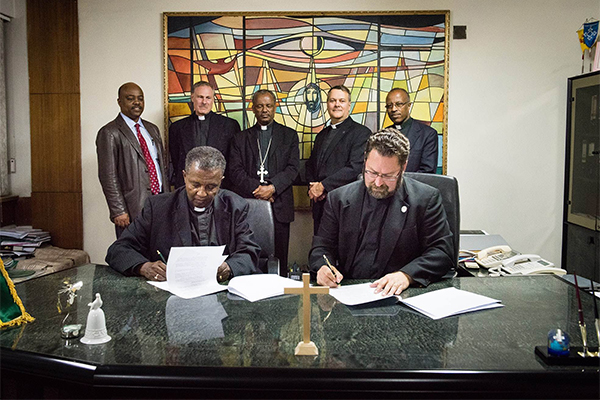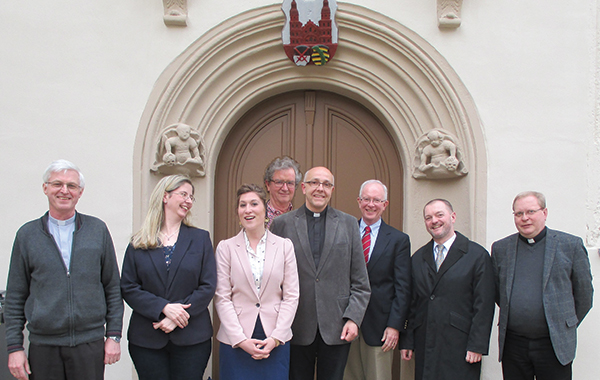
SELK representatives welcome Director Kristen Lange to Wittenberg.
WITTENBERG, Germany – On April 7, representatives of the Independent Evangelical Lutheran Church of Germany (SELK) met with the new Director of the International Lutheran Society of Wittenberg (ILSW), Kristen Lange, in Wittenberg’s Old Latin School.
Since the historic building in Wittenberg’s Old Town was restored and renovated as a study and welcome center, it began serving in its new role during the past year. The comprehensive building phase was headed up by Rev. David Mahsman. Now, as things transition into the programming phase, Kristen Lange has assumed responsibilities as its director. The SELK works together in the ILSW with its U.S. partner, The Lutheran Church-Missouri Synod (LCMS). The LCMS’ mission department employs Director Lange as a missionary to Germany.
Director Lange, an academically-trained linguist (in German and English), had opportunity to visit with SELK Bishop Dr. Hans-Jörg Voigt, SELK District Presidents Peter Brückmann (of Berlin) and Thomas Junker (of Weissenfels), Rev. Markus Fischer (of Trinity Lutheran Church, Leipzig, which has responsibility for Wittenberg), Ulrich Schroeder (of Dresden) and Dr. Andrea Grünhagen (of Hannover, a theological resource executive). The SELK delegation took the opportunity to get acquainted and extend a sincere welcome to Germany. Rev. Mahsman also participated in the conversation, which, in addition to information about SELK church structures and procedures, considered upgrading a preaching presence in Wittenberg, as well as public relations, outreach, and preparations for the “World Reformation Exhibition,” planned for Wittenberg as part of the 2017 Reformation anniversary.
Bishop Voigt explained to SELK-News that he is filled with gratitude every time he visits the Old Latin School. “The strong LCMS engagement, which also involved the SELK, has brought results. I wish Kristen Lange a good adjustment to Germany and the Lord’s blessing for her work.”
Translation: Robert Bugbee

